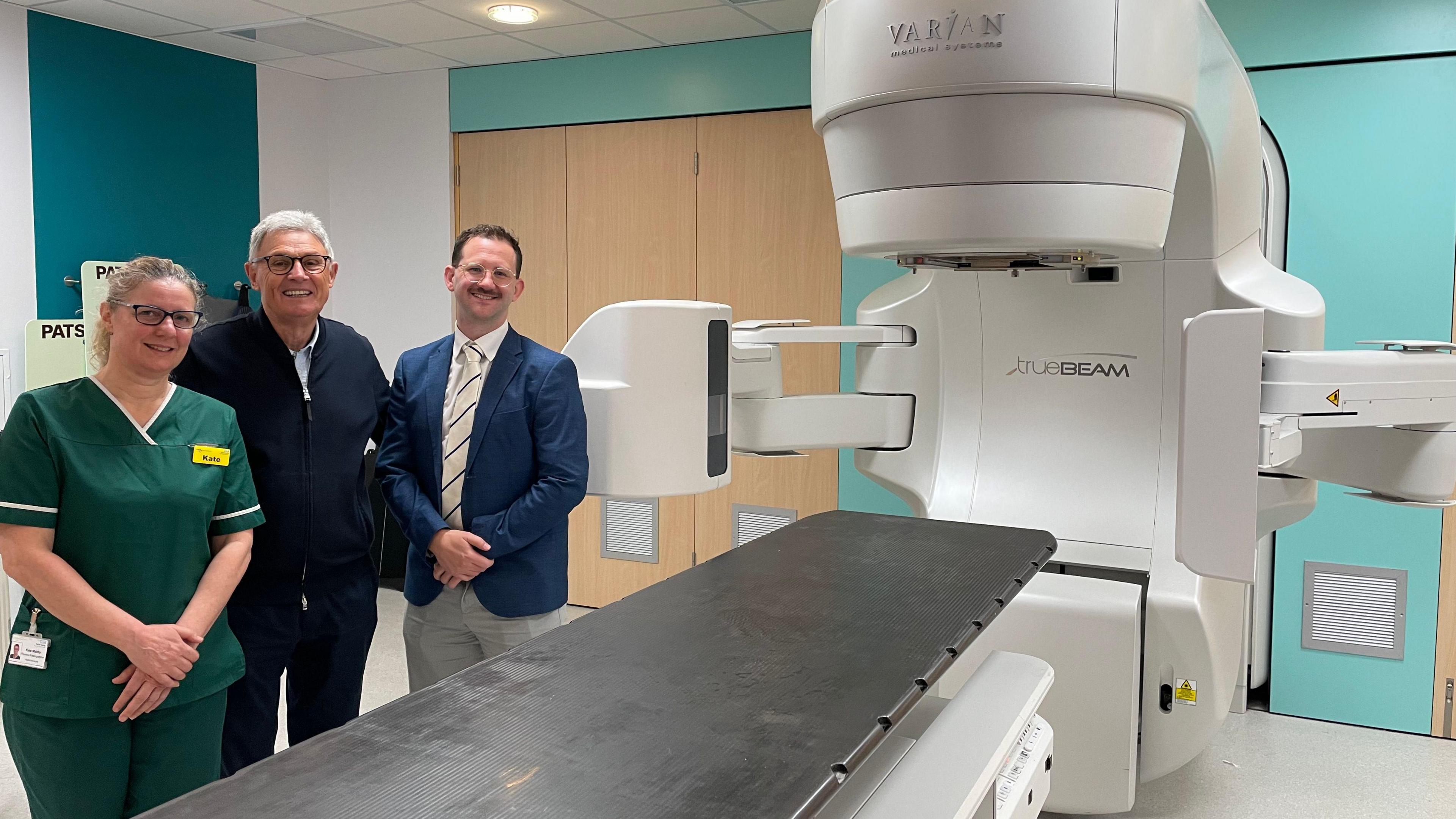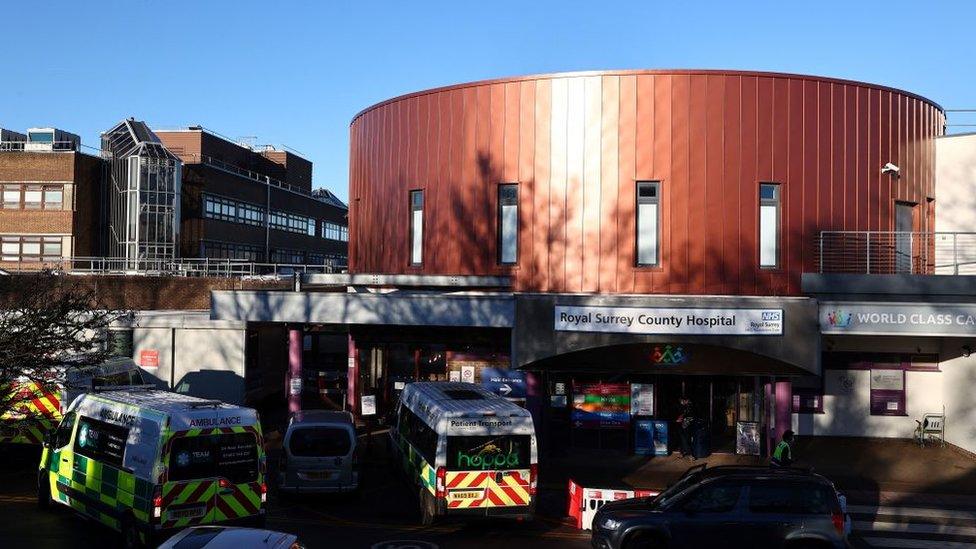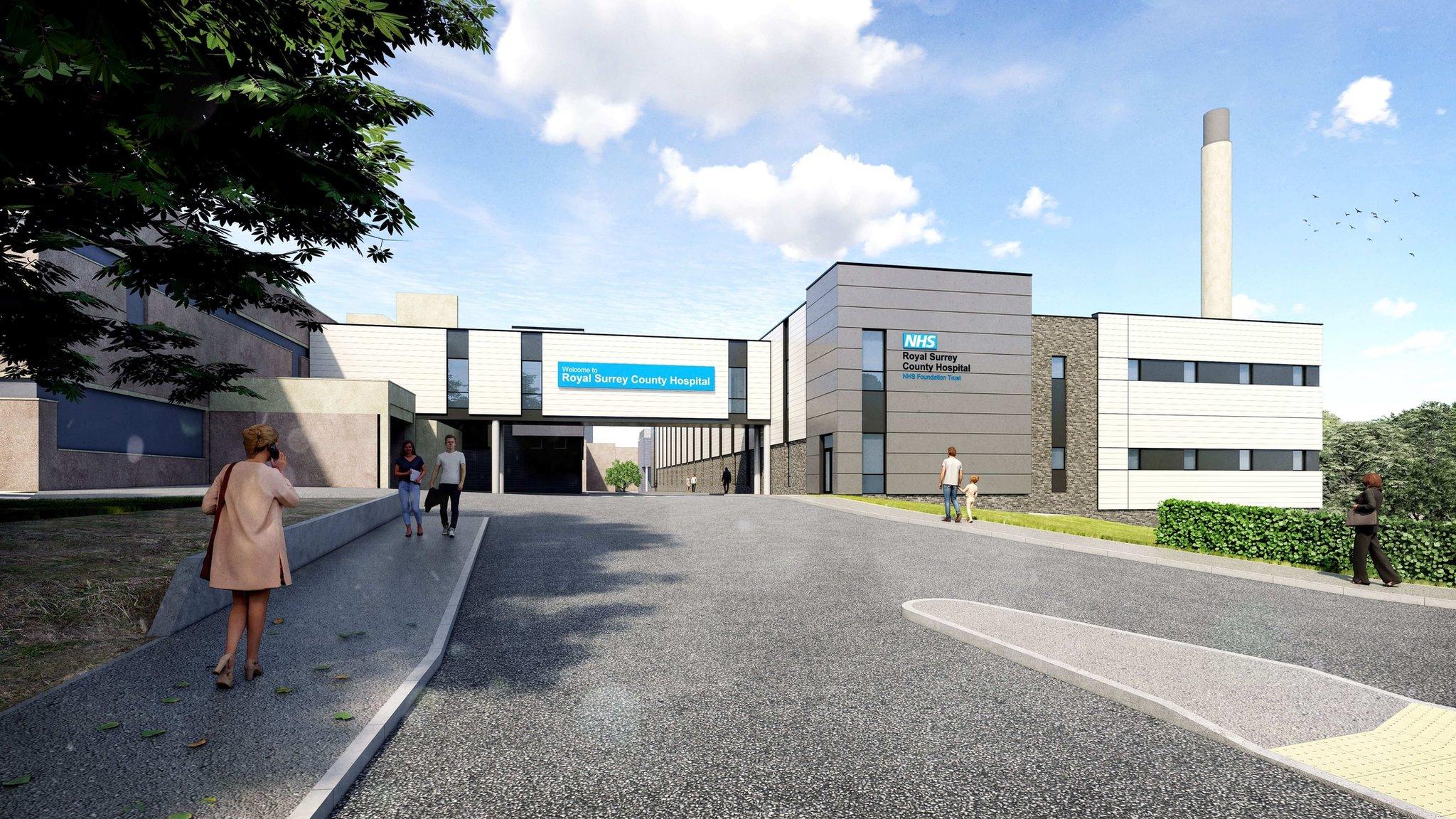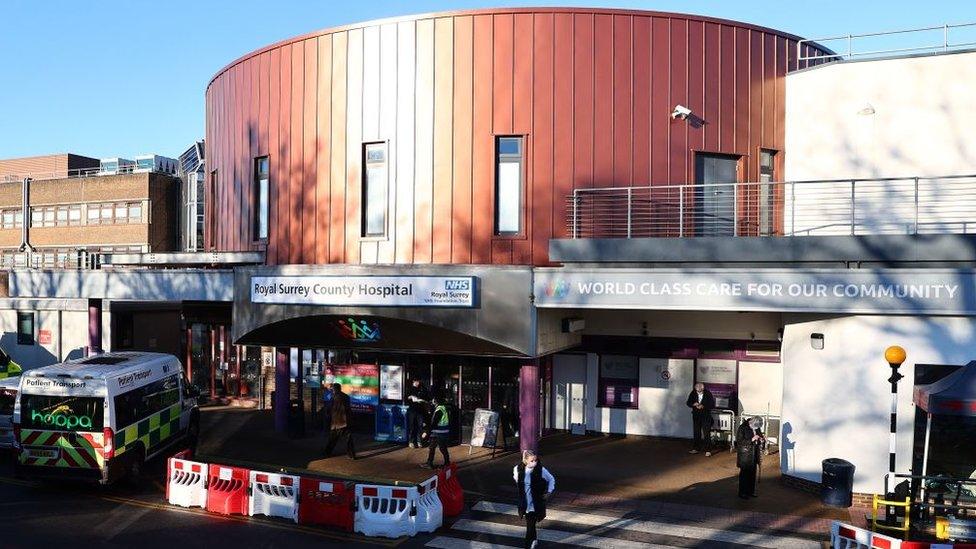Trial starts on quicker prostate cancer treatment

Philip Turner, right, said Surrey patients would get access to the 'very best' oncology clinical trials
- Published
A new clinical trial offering men with high risk prostate cancer quicker radiotherapy treatment has begun at a Surrey hospital.
The trial will offer radiotherapy treatment over a week and a half, rather than the current minimum of 20 treatments over four weeks or more.
The first patient to be part of the trial, Michael Robson, 78, was diagnosed in December.
He said he felt "privileged" to be taking part in the Royal Surrey County Hospital trial.
When given options for treatment, he was asked if he wanted to be on the trial, having gone for a test after one of his friends was diagnosed with prostate cancer.
Mr Robson said: “The service has been first class from everybody concerned.”
A previous trial on low- and intermediate-risk patients showed a shorter stereotactic radiotherapy could safely be used as an alternative to longer courses of conventional radiotherapy.
Stereotactic radiotherapy is a way of targeting radiotherapy very precisely at a tumour.
The next phase of these trials is to look at whether it is also effective for men with high risk disease.
Philip Turner, consultant clinical oncologist and principal investigator for the trial, said: "This is part of our drive to give Surrey patients access to the very best oncology clinical trials from across the UK and indeed from across the world."
He said the current four weeks of daily visits was "very disruptive to life" for those being treated.
Chief executive Louise Stead said the hospital was "thrilled" to be involved in the trial.
Royal Surrey NHS Foundation Trust is a partner site in the trial, which was opened and is led by The Royal Marsden NHS Foundation Trust and designed jointly with Queen’s University Belfast and the Institute of Cancer Research, London.
Follow BBC Surrey on Facebook, external, and on X, external. Send your story ideas to southeasttoday@bbc.co.uk, external or WhatsApp us on 08081 002250.
Related topics
- Published22 February 2024

- Published7 February 2024

- Published8 February 2024
